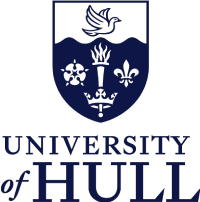Dr A Oates, Prof Matthew Hardman, Mr G Smith
No more applications being accepted
Funded PhD Project (Students Worldwide)
About the Project
This PhD project is based in Hull York Medical School.
Antimicrobial resistance is recognised as a major global health and economic threat. Bacterial strains have developed a multitude of resistance mechanisms to many different types of antimicrobials, including widely used antibiotics. This places ever increasing pressure on the effective prevention and treatment of skin and wound infections, without promoting further resistance.
Emerging studies, including those from our group, reveal strong correlation between the microbiota profile of clinical samples and healing outcome. By contrast, very little is known about the distribution of bacterial resistance within clinical wound samples, or how population-level resistance profiles are linked to healing outcome and/or response to treatment.
In this PhD project you will harness the potential of population-level long-read microbial DNA profiling to explore how individual and population level bacterial resistance changes throughout healing and treatment pathways.
Applying this approach before, during and after antimicrobial treatments will allow you to visualise the acquisition and transfer of resistance within clinical microbiota communities. The new insight provided by this PhD has the potential to change the way we manage wound infections in the clinic.
More about this research team
We are looking for talented candidates to join a multi-disciplinary cluster of four funded PhD scholarships. Working with a major industry partner you will develop and apply cutting edge microbiome profiling technologies to real world clinical and consumer applications.
We are covered, inside and out, by diverse communities of microorganisms, collectively termed our ‘microbiota’. These microorganisms are intimately associated with their micro-environment, producing a range of factors that regulate both our heath and susceptibility to disease.
As a student within this cluster you will focus on understanding the microbial complexity of the skin or respiratory tract, two tissues that are currently poorly studied. You will explore new ways to promote a “healthy” microbiome, test the microbe-supporting effects of new products, or develop new methods to characterise the resistance of wound bacteria at the population level.
Supervised by a team of internationally recognised academics you will have access to outstanding research facilities, including the Hull “VIPER” high performance computing, and NHS/clinical partners.
These projects will provide unique “big data” bioscience training, within a vibrant, supportive research environment, equipping you with skills that are essential for a future career in modern academia or industry.
Applicants for this project need to apply through the University of York website. Please select PhD in Medical Sciences with a start date of “2020 October, full time” and quote the specific project title you wish to apply for.
Entry requirements
Applicants should have a 1st class undergraduate degree in Biomedical Science, Microbiology or Computing, together with relevant research experience or a Masters level qualification in a relevant discipline. A 2:1 may be considered, if combined with relevant experience.
Successful applicants will be informed of the award as soon as possible and by 16 March 2020 at the latest.
Scholarships will start on 21 September 2020.
Funding Notes
This is a funded scholarship over a three year period for full-time study. The funding you receive will cover the fees for your PhD programme and also an annual maintenance grant at the level of UKRI (£15,009 in 2019/20).
There is an optional writing up period if you need to complete your thesis after the three year period of your research degree, for which there is a small charge. Your maintenance grant will not cover you during this optional writing up period.

 Continue with Facebook
Continue with Facebook

